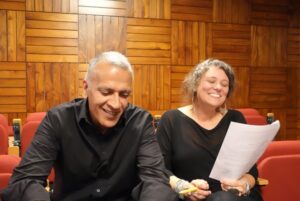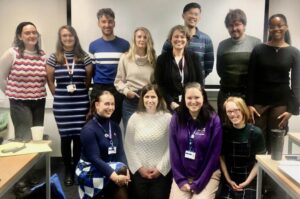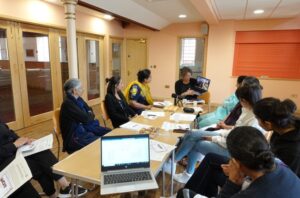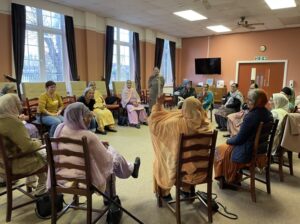This research programme engages members of several underserved communities in Kent. The UK’s National Institute for Health and Care Research (NIHR) defines an underserved community as ‘a group that is less well represented in research than would be desirable from population prevalence and healthcare burden’ (more here). The programme has three overarching aims:
- Experiences of mental health: To map out perceptions, experiences and understandings of ‘mental health’ in underserved communities in Kent
- Engagement and involvement in mental health research: To understand the challenges, barriers and facilitators of members of underserved communities to engage with and be involved in mental health research in Kent
- Diversity and inclusion: To increase representation and participation of members of underserved communities, facilitating inclusive opportunities that bring together people with different experiences and backgrounds in mental health research carried out in Kent
This research programme includes a series of projects, funded by the AHRC, CRN KSS and the University of Kent, bring together three key partners in mental health research in Kent: the Centre for Health Services Studies (CHSS), the Kent and Medway Medical School (KMMS) and the Kent and Medway NHS and Social Care Partnership Trust (KMPT).


The programme, which is supported by awards with a total value of £160,000 from different funders, is led by Professor Lisa Dikomitis, a medical anthropologist, who works in close collaboration with the Research and Innovation Department at KMPT, led by Professor Sukhi Shergill, psychiatrist. All projects involve social scientists, health service researchers and psychiatrists, and early career researchers who are carrying out qualitative research with community members in Kent.
1. Engaging Kent Sikhs with mental health research (funded by University of Kent, KMMS and CRN KSS)
Team: Ms Elena Dikomitis, Prof Lisa Dikomitis (PI), Ms Tejinderjit Sanghera, Ms Aman Rattan and Prof Sukhi Shergill
2. INTERACT: Imagining mental healthcare: engaging underserved local communities in Kent (funded by UKRI, AHRC)
Team: Dr Letizia Bonanno, Dr Dieter Declercq, Prof Lisa Dikomitis (PI), Ms Sam Holmans Thompson, Dr Jo Rodda, Prof Sukhi Shergill and Dr Derek Tracy
3. Engaging people with dementia in research in Kent’s coastal communities (funded by CRN KSS)
Team: Prof Lisa Dikomitis, Dr Jo Rodda (PI), Ms Ursula Shepherd and Prof Sukhi Shergill
4. Engaging people with several mental illnesses with health research in Kent (funded by CRN KSS)
Team: Prof Lisa Dikomitis (PI), Dr Ferhana Hashem, Mr Joseph Price, Prof Sukhi Shergill
5. Engaging young people from Kent’s ethnic minority communities with mental health research (funded by CRN KSS)
Team: Prof Lisa Dikomitis (PI), Dr Ferhana Hashem, Ms Glory Oluwaseun, Prof Sukhi Shergill


The five projects are distinct in that the project team works with a specific community in Kent, but all projects are working towards 4 objectives:
1. Knowledge acquisition: To use qualitative research methods to understand what the facilitators and barriers are for people from Kent’s underserved communities to participate in mental health research, as such participation is currently very limited
2. Raising awareness around participation in research: To create resources and deliver training about participation in mental health research (around consent, different modes of participation and the range of methodological approaches in research)
3. Co-produced knowledge dissemination: To co-produce and disseminate project findings through accessible materials to promote participation in research (for instance, flyers, posters, podcasts and booklets)
4. Patient and Public Involvement (PPI): To establish bespoke PPI mental health research groups with people from underserved communities in Kent
 Drawing by Dr Letizia Bonanno
Drawing by Dr Letizia Bonanno
For more information about this research programme, please contact Professor Lisa Dikomitis: L.Dikomitis@kent.ac.uk